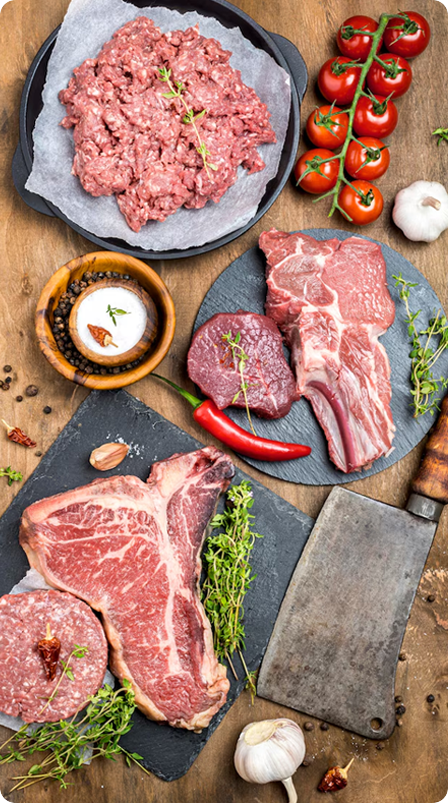March 03, 2026 | 13 Ramadan 1447
Zabiha Halal
Home /Zabiha Halal
What is Zabiha?
Zabiha are the rules of slaughtering an animal to make it Halal for consumption.
The Conditions of Zabiha:

At least THREE out of the FOUR main veins of the throat MUST be cut.
Mentioning the name of Allah at the time of each slaughter
a. “Eat not (of meats) on which Allah's name has not been pronounced, and surely it is a sin...” (al-An’aam : 121)
b. Any animal upon which Bismillah is not mentioned intentionally at the time of slaughter, is considered maitah (carrion, or dead meat).
Maitah is just as haram as pork.
The butcher must be a Muslim or Believing Ahlul Kitab
a. If one does not know who slaughtered the animal, further researched MUST be done before eating
Note: If ANY ONE of the above conditions is not fulfilled, the meat will be HARAM for consumption.
What is Halal
to eat?
Halal is that which is permissible and lawful in Islam.
Haram is what is impermissible, unlawful or prohibited in Islam.
The basic dietary
laws for Muslims are:
Zabiha are the rules of slaughtering an
animal to make it Halal for consumption.
The Conditions of Zabiha:
1. ONLY that which is tayyib (pure) is Halal (al-A’raaf:157)
2. That which is khabeeth (impure) is Haram (al-A’raaf:157)
3. That which is tayyib is Halal, and that which is Halal is tayyib
(al-Baqarah:168)
Some Basic
Principles of
Eating Halal:

The general ruling in all things is that it is permissible (allowed), unless proven otherwise.

The principle ruling in meat is that it is impermissible (haram), unless proven otherwise.
Difference between Halal and Zabiha
Those animals declared as “Halāl”, if they have been slaughtered according to “Zabīha” rules, only then
is consuming their meat is “Halāl”.

There is no difference of Zabiha & Halal in the Quran, Sunnah or any other Fiqh text.
There is NO DIFFERENCE between HALAL and ZABIHA HALAL. Zabiha is required to consider meat Halal.